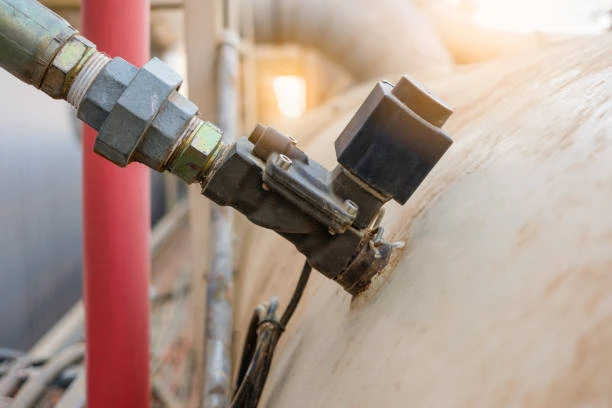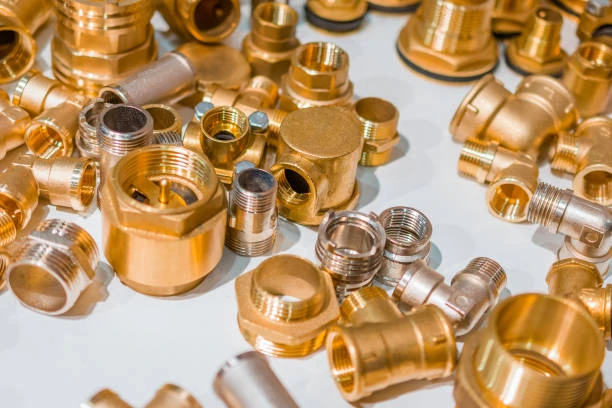REHAU, a global leader in polymer-based solutions, has announced the launch of their innovative modular brass tees fittings, designed specifically to support the expanding district heating market. With the demand for energy-efficient heating systems on the rise, these brass tees fittings aim to provide a reliable and flexible solution for modern district heating networks. The introduction of modular brass tees fittings marks a significant advancement in the sector, offering enhanced performance, durability, and installation flexibility.
In this article, we will explore the importance of brass tees fittings in district heating systems, the key features of REHAU’s new product line, and how these modular fittings will impact the district heating market.
The Role of Brass Tees Fittings in District Heating
Brass tees fittings are an essential component in plumbing and heating systems, used to connect three separate pipes at a single point. These fittings are commonly employed to split or merge flows in heating networks, allowing for the effective distribution of hot water or steam throughout a system. In district heating networks, where multiple buildings are connect to a central heating plant, brass tees fittings play a critical role in maintaining the efficiency and performance of the entire system.
District heating is an energy-efficient method of distributing heat generated in a central location, such as a power plant or biomass boiler, to residential, commercial, and industrial buildings. This method reduces the need for individual heating units, lowering energy consumption and carbon emissions. To ensure optimal performance, the heating network requires reliable components, such as brass tees fittings, that can withstand high temperatures, pressure, and the wear and tear associated with long-term operation.
Why Brass is the Preferred Material for Tees Fittings
Brass tees fittings are favored in district heating systems due to the material’s inherent properties, which include:
- Durability: Brass is a strong, long-lasting material that resists corrosion, even when exposed to water and varying temperatures.
- Malleability: Brass is relatively easy to machine and mold, making it ideal for creating complex fittings like tees.
- Corrosion Resistance: Unlike some other metals, brass does not rust, making it a reliable choice for plumbing and heating systems that operate under extreme conditions.
- Thermal Conductivity: Brass conducts heat effectively, helping to maintain efficient thermal transfer in district heating systems.
These characteristics make brass tees fittings ideal for high-demand heating networks where performance, reliability, and longevity are crucial.

Key Features of REHAU’s Modular Brass Tees Fittings
REHAU’s new modular brass tees fittings are specifically engineered to meet the unique challenges of district heating systems. The company has incorporated several innovative features into this product line to enhance the efficiency and ease of installation, making these fittings a game-changer for the industry. Here are some of the key features of REHAU’s brass tees fittings:
- Modular Design
The modular design of REHAU’s brass tees fittings allows for flexibility during installation. The fittings can be easily configured and adjust to suit a variety of system layouts and requirements. This modularity helps reduce installation time and allows for easy adjustments if changes or expansions are needed in the heating network. - High-Temperature and Pressure Resistance
District heating systems often operate under high-temperature and high-pressure conditions. REHAU’s brass tees fittings are design to withstand these demanding environments, ensuring long-term durability and minimizing the risk of system failures. - Leak-Proof Connections
The brass tees fittings are designed to provide secure, leak-proof connections between pipes, reducing the risk of water loss or system inefficiencies. Leak-proof connections are particularly important in district heating systems, where even small leaks can result in significant energy and cost losses over time. - Compatibility with Multiple Pipe Types
REHAU’s modular brass tees fittings are compatible with a wide range of pipe materials, including PEX, copper, and stainless steel. This compatibility makes the fittings a versatile option for various district heating installations, whether in new builds or retrofitting existing systems. - Eco-Friendly Manufacturing
In line with REHAU’s commitment to sustainability, the brass tees fitting are manufactur using eco-friendly processes. Brass is a recyclable material, and REHAU ensures that the production of their fittings minimizes waste and energy use, contributing to a more sustainable future for the heating industry.
The Growing Demand for District Heating Solutions
The district heating market is experiencing significant growth due to increasing global efforts to reduce carbon emissions and improve energy efficiency. District heating is seen as a key solution in achieving these goals. As it allows for the centralized production and distribution of heat, which is more efficient than individual heating systems. Many countries, especially in Europe, are investing heavily in expanding their district heating networks as part of their energy transition strategies.
The introduction of REHAU’s modular brass tees fitting is timely. As the market requires innovative and reliable components that can meet the increasing demand for district heating solutions. These fittings will help improve the performance of district heating systems. Ensuring that they operate efficiently and reliably over the long term.
Benefits of REHAU’s Modular Brass Tees Fitting for the District Heating Market
REHAU’s modular brass tees fitting offer several benefits that make them well-suited to the growing district heating market. Here are some of the key advantages:
- Increased Installation Flexibility
The modular nature of the brass tees fitting allows installers to adapt the system configuration easily. This flexibility is particularly beneficial in complex district heating networks, where different buildings or areas may have varying heating requirements. - Reduced Installation Time
The modular design and easy-to-use connections of the fittings help reduce installation time. Lowering labor costs and minimizing disruptions during the installation process. Faster installations also allow for quicker project completion, which is important in large-scale district heating projects. - Improved System Efficiency
By providing secure, leak-proof connections and ensuring reliable performance under high-temperature and high-pressure conditions. REHAU’s brass tees fitting contribute to the overall efficiency of district heating systems. Efficient systems reduce energy waste, lower operational costs, and enhance the environmental benefits of district heating. - Long-Term Durability
The high-quality materials used in REHAU’s brass tees fitting ensure that they can withstand the demands of district heating networks for many years, reducing the need for frequent replacements or repairs. This longevity translates into cost savings for operators and greater system reliability. - Sustainability
The eco-friendly manufacturing process and the use of recyclable materials align with the global push for more sustainable heating solutions. REHAU’s brass tees fitting support the industry’s shift towards greener, more energy-efficient technologies.
Conclusion
REHAU’s launch of modular brass tees fittings is a significant advancement for the district heating market.
As district heating continues to grow as a preferred heating solution for urban areas, REHAU’s modular brass tees fittings will play a key role in ensuring that these systems remain efficient, reliable, and sustainable for years to come.
FAQs
- What are brass tees fitting us for in district heating systems?
Brass tees fitting are us to connect three pipes at a single point. Allowing for the distribution or merging of flows in district heating systems. They are crucial for ensuring efficient heat transfer and distribution in the network. - Why is brass a preferred material for tees fitting?
Brass is favor for its durability, corrosion resistance, malleability, and thermal conductivity. Making it an ideal material for tees fittings in high-demand systems like district heating networks. - What is the advantage of modular brass tees fitting?
Modular brass tees fitting offer flexibility during installation, allowing for easy adjustments and configurations. This modularity reduces installation time and enables the system to be expand or modified as needed. - How do REHAU’s brass tees fitting contribute to system efficiency?
REHAU’s fittings ensure leak-proof connections and reliable performance under high temperature and pressure. Helping to improve the overall efficiency and longevity of district heating systems. - Are REHAU’s brass tees fitting eco-friendly?
Yes, REHAU’s brass tees fitting are manufactur using sustainable processes, and brass itself is a recyclable material. This aligns with the growing demand for environmentally friendly heating solutions.

















